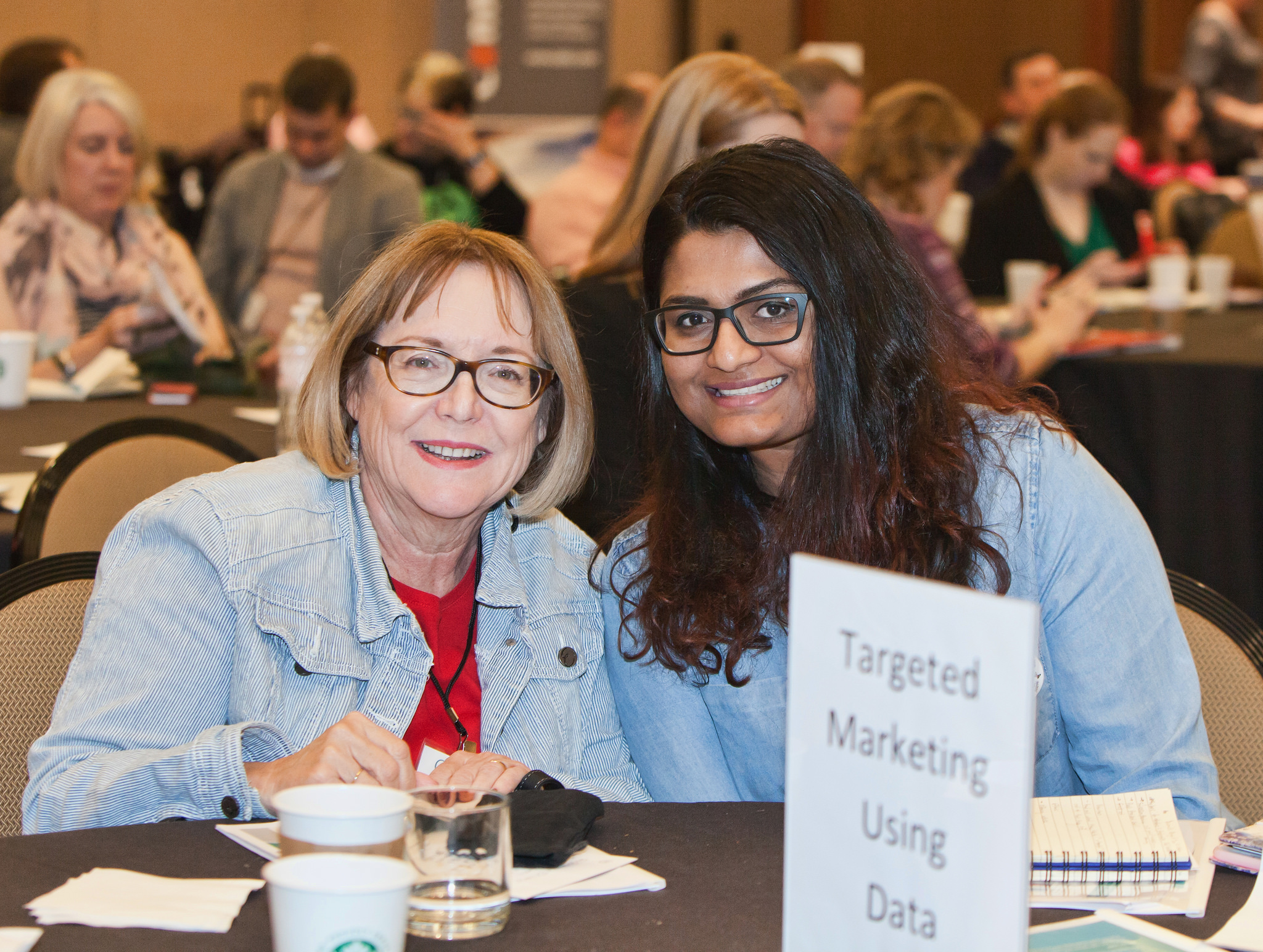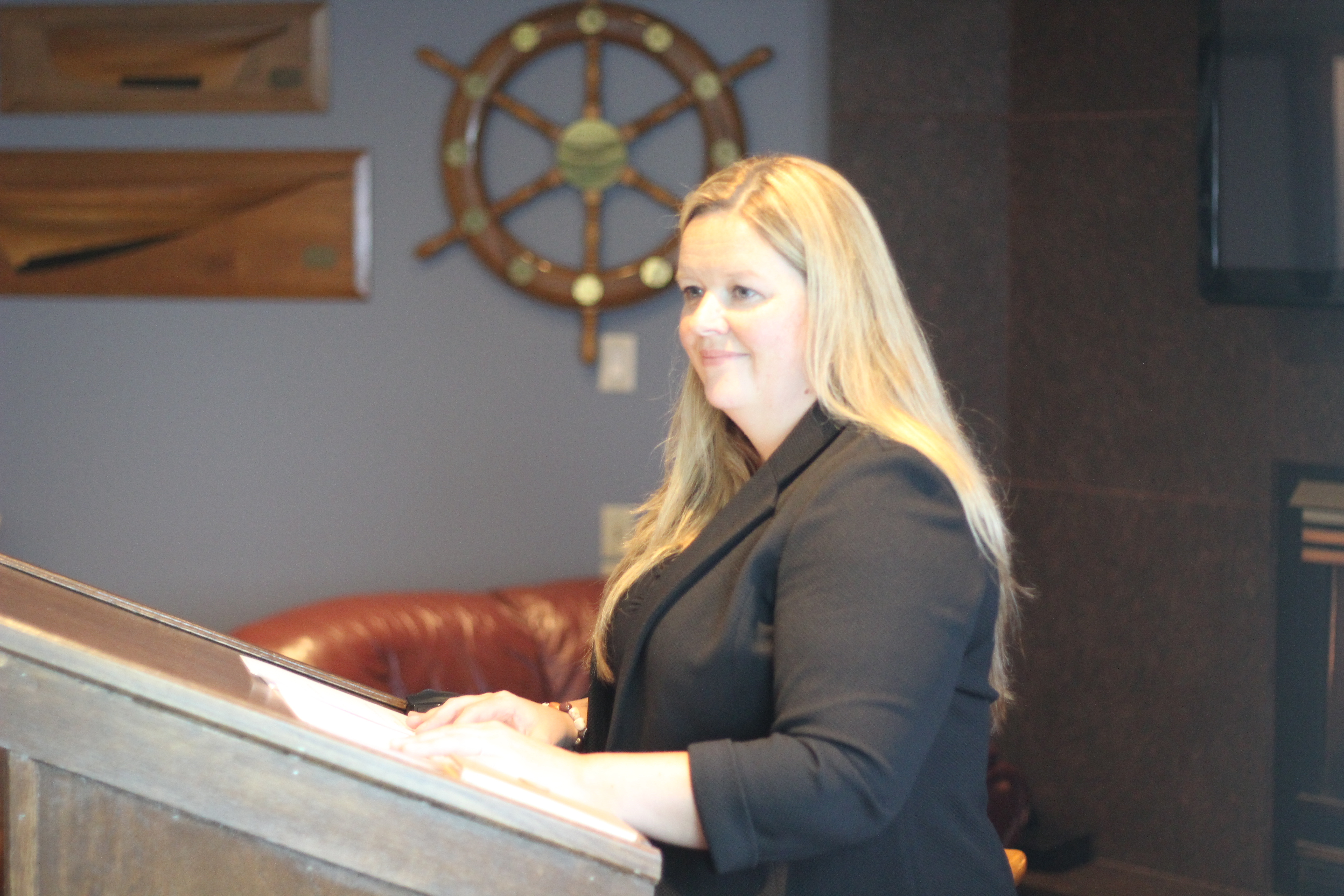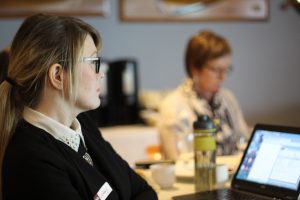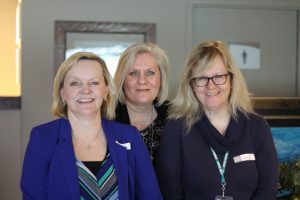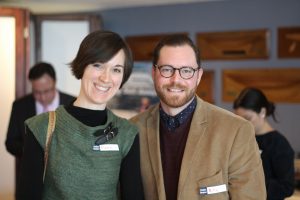By Delia Loveless
On March 29, 2017, IABC Waterloo hosted its first annual Break Through Communications Conference. Held at the Walper Hotel in Kitchener’s historic downtown, the sold-out conference struck the perfect balance of speakers from across industries, experience levels and expertise.
Below are our key take-aways from the day.
Cyrus Mavalwala, Breaking Through with Compelling Content
Producing digital content is now considered a basic practice. But with virality as the new industry standard and increasing amounts of content being published across social channels, communicators are left with declining engagements and plateaued followings.
So, how can communicators re-engage their followers and breathe life back into their pages?
- Start with strategy: Be the owner of your audience and take control of your content. Analyze everything, digital = data!
- Know your audience: Take the time to research your audience. Know them inside out, from what platforms they are using, to their devices and primary activity.
- Quality over Quantity: Invest in professional photography or stock images. Beautiful, clear images do significantly better than content without pictures or that have poor quality images.
- Provide value: Are you giving anything to your audience? Are they learning from you or gaining experience from you?
- Deliver an experience: Get on board with the trends. People crave authentic and unpolished content and content in which they can immerse themselves (think virtual reality and 360 camera).
Caitlin MacGregor, Employee Engagement and Culture
When you create a job posting, does it sell your company as the BEST company to work for? Does it look for great talent AND advertise your company’s brand and culture? Do your ideas of your culture align to the values of your employees?
Culture is about what matters to non-management. It’s what keeps your employees satisfied in their roles and knowing it can be your company’s greatest strength. Figuring out your company culture is great, but what’s more important is discovering what you want your company culture to become and working towards it to add value to your organization.
Caitlin MacGregor, Founder and CEO of Plum, offered insight as to how her software helps organizations find the discrepancy between perceived and true culture. It also helps employers find the best suited candidates for jobs based on their soft-skills and ability to succeed, versus their experience.
Caralee Ayora, Core Elements of Effective Communication
Everything you know, and everything you apply in the workplace today can be attributed to the things you learned when you were young.
In Kindergarten, you learned to be nice to everyone. As a professional, you should be making connections and getting to know as many people as possible on a personal level. You can never have too many friends.
If you don’t have anything nice to say… don’t tweet it at all. In a landscape of easy connection and communication, taking back messages is next to impossible. Ensure your messages align with your brand before posting anything.
Homework doesn’t end at graduation. Own your research and get the details down.
Connect the dots as an adult. Your strategy should always aim to achieve the broader picture.
Sam Trieu, How to Become a Marketing Octopus
Did you know that octopuses can be found in every major salt water body? They’ve managed to survive and thrive in every ocean. What people tend to forget is that everyone once started out sucking at their job, but through diversity of experience, they molded their future roles. For anyone starting out, the most important thing you can do to gain experience is say ‘yes’. Say ‘yes’ to volunteering, to learning. Know your industry inside and out.
Did you know there are over 300 octopus species around?
Just like there are 300 species of octopus, there are 300 different ways to market. While it’s impossible to do them all, what you can do is identify the practices that will best meet your company’s needs now.
The majority of their neural activities occurs outside of their brain and head, and ⅔ of their neurons are in their arms. Own your marketing role at your organization. Volunteer, and pursue online, offsite and day-to-day learning that will help you do your job, and know your industry is a good idea.
Octopuses are the first invertebrates observed to adeptly utilize tools. Everyone has limited resources – money, staff, time. Use what you have to conquer business goals. Better yet, use your people resources and network.
Females lay 200,000 to 400,000 eggs. After the eggs hatch, her body goes through cellular suicide until she dies. Build the next generation. Be generous with knowledge, mentorship and opportunities.
Lanny Cardow, Opinion Polling and Messaging Position
 What words best describe your business and product? How do you differentiate yourself from your competitors and make sure you come out on top?
What words best describe your business and product? How do you differentiate yourself from your competitors and make sure you come out on top?
Qualitative research, specifically using focus groups who have been mined down to your exact audience are one of the best options for really digging into what your customers are thinking.
By refining and testing your messages, you can hone in on your brand’s image and use that knowledge to easily embed your messages.
Dr. Terry Flynn, The Role of the Chief Communications Officer
Today’s CCO is the driver of change. They wear the hat of the traditional CCO while also finding balance as the integrator and the builder of digital engagement. As we work towards our next career aspirations as communicators, the roles we will be taking on will continue to diversify.
There is no longer a clear line between the marketer and the communicator. Rather, they have become two sides of the same coin, blending and blurring the lines of what was traditionally a more divided and individual purpose.

Today’s communicator, especially the CCO, works with leadership, the CEO and collaborates to define and activate corporate character. They use data to understand individuals, create channels to engage individuals directly and equip employees to engage. They are the juggler of many roles and the leaders of modern communications and marketing.
From the morning keynote speaker to the closing remarks with IABC Waterloo President Paula Barret*, the conference went beyond educational. Fresh, contemporary, inspiring and thought provoking, Break Through delved into the obstacles and limitations communicators face. Seven speakers and a career panel later, conference attendees left with a tool box of solutions for success.
*Paula Barrett will be the keynote speaker at the IABC Golden Horseshoe chapter’s Annual General Meeting in May. She will deliver insights and anecdotes gained through her experience working as a Senior Intern. Stay tuned for details on that great event.
Delia Loveless
Delia is a communications professional with an honours certification in Public Relations from Mohawk College. She has led communications for start-ups and is currently a Co-Vice President of Communications for IABC Golden Horseshoe. When she’s not scheduling a tweet or reading up on the latest digital trends, she’s researching her next backpacking destination and trying out Pinterest recipes.

